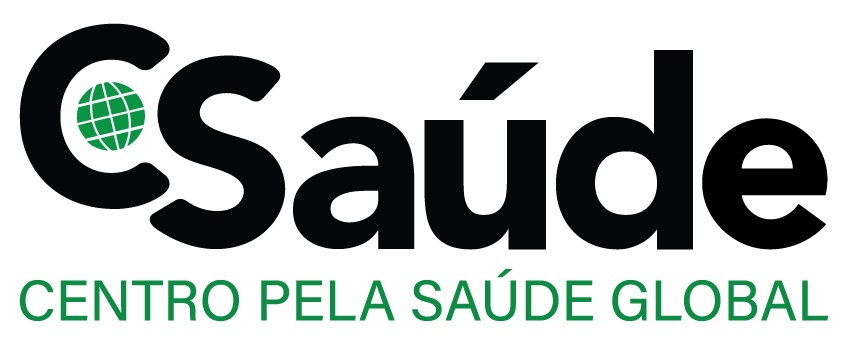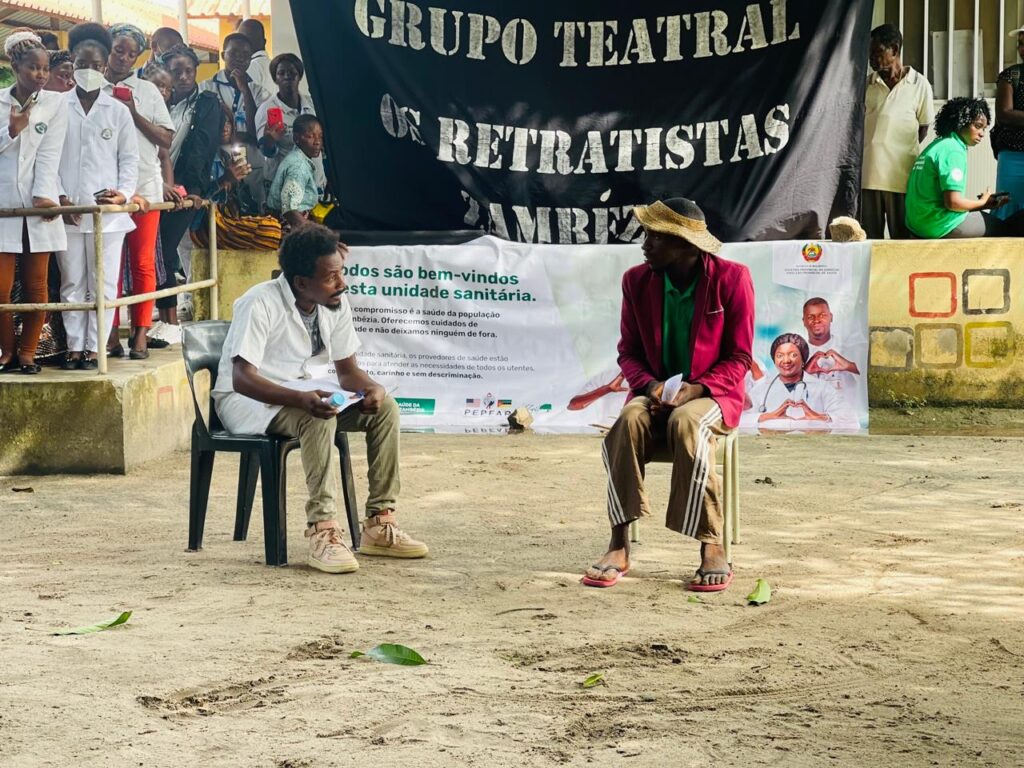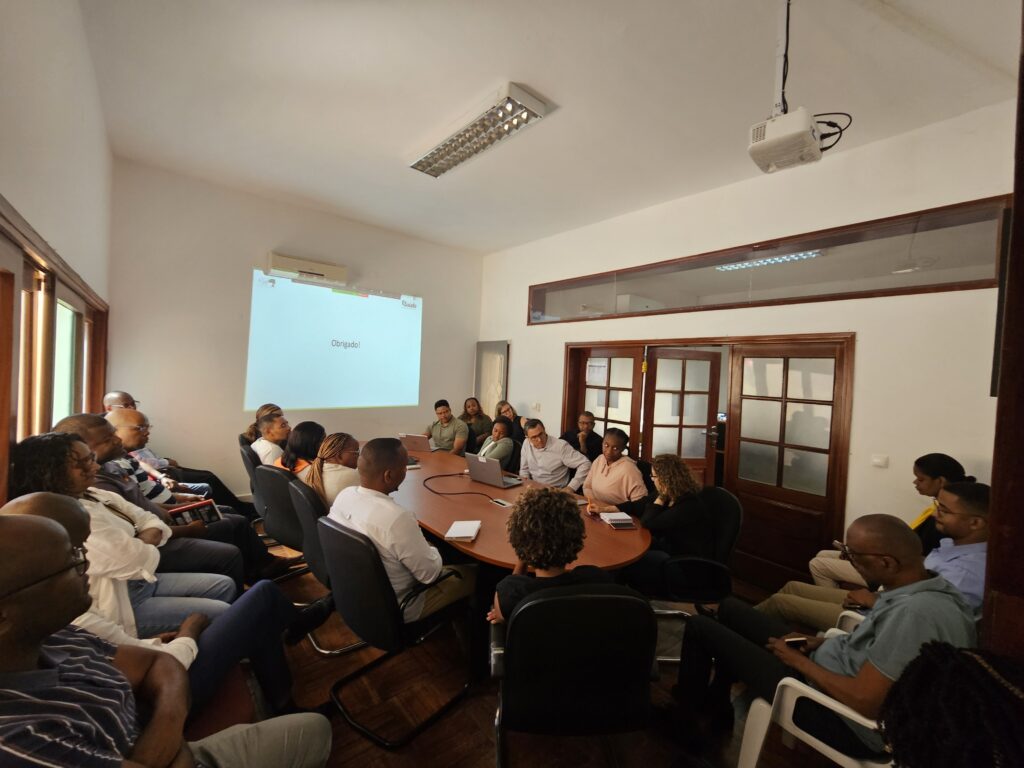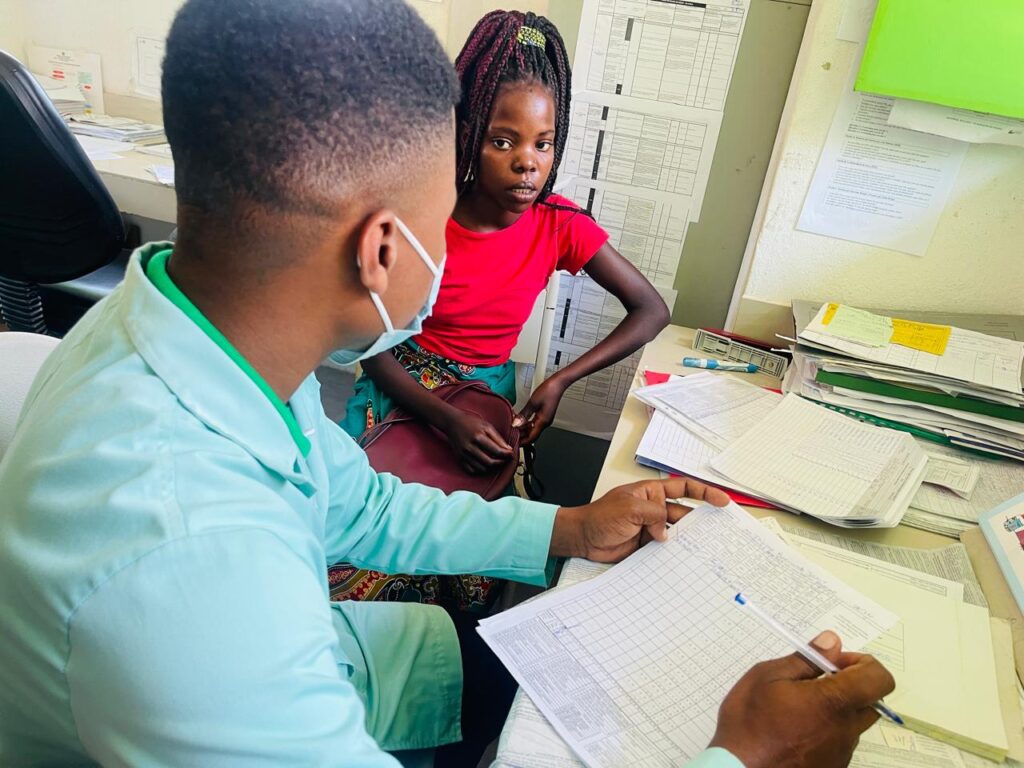The vertical transmission of HIV, which occurs from mother to child during pregnancy, childbirth, or breastfeeding, remains a significant challenge in the fight against the HIV epidemic. In countries such as Mozambique, where the prevalence of the disease is high, prevention during this critical phase is a public health priority. In the Zambézia Province, various initiatives are underway to ensure that mothers and children have a healthy start to life, free from the virus.
It is estimated that a significant percentage of pregnant women are HIV positive. Vertical prevention is an essential strategy that encompasses various actions, from early diagnosis to antiretroviral treatment, providing expectant mothers with the opportunity to have healthy children. Understanding the magnitude of the problem and the efforts directed towards its mitigation is fundamental to the effectiveness of health policies.
With the support of C-Saúde, healthcare professionals in Zambézia have mobilized around assistance programs that aim not only to treat but also to educate. In interviews with Maternal and Child Health Nurses (MCHN) working at the Nicoadala health unit, the impact of prenatal sessions that include HIV testing and guidance on the use of antiretroviral treatment was highlighted. “It is vital for women to understand that, with proper treatment, they can have healthy, HIV-free babies,” stated Lizete Manuel, an ESMI nurse.
Additionally, community awareness campaigns have been organized to bring information to remote areas. Community health agents have conducted lectures and distributed informational materials about HIV prevention, addressing myths and realities that still surround the topic.
Madalena Jamal, a young mother of three, shares her experience: “When I learned that I was HIV positive, I thought there was no hope. But with the support of the hospital and treatment, I was able to have my last child without the virus. He is healthy and happy.” This narrative not only highlights the importance of vertical prevention but also the transformative impact it can have on the health of mothers and newborns.
Despite progress, significant challenges remain. The social stigma associated with HIV still prevents many women from seeking healthcare services. Additionally, the lack of resources in some areas and limited access to maternity care and other quality health services hinder the effective implementation of prevention programs.
To address these barriers, C-Saúde is finding solutions by training community and religious leaders, midwives, and traditional birth attendants, who act as health advocates and mobilize pregnant and lactating women to access healthcare services.
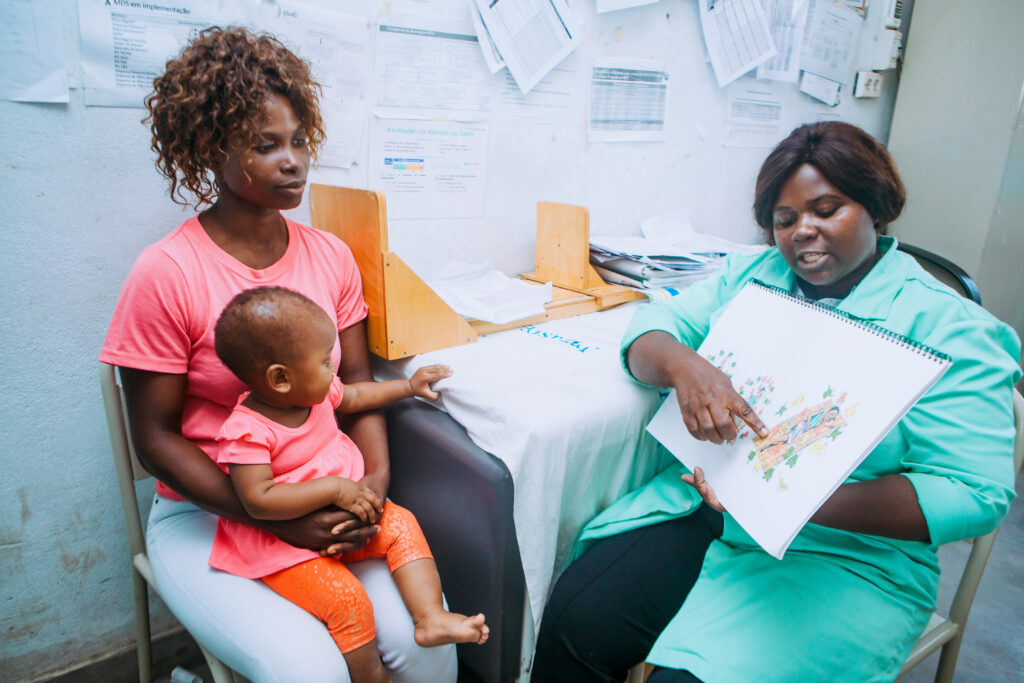 Lizete Manuel, health provider, conducts counseling on PTV (Prevention of Vertical Transmission) using a guideline to encourage adherence among pregnant women.
Lizete Manuel, health provider, conducts counseling on PTV (Prevention of Vertical Transmission) using a guideline to encourage adherence among pregnant women.